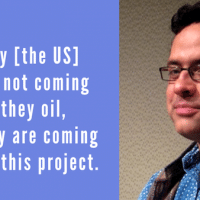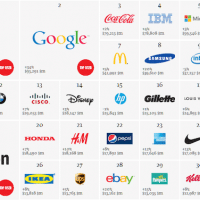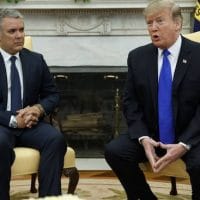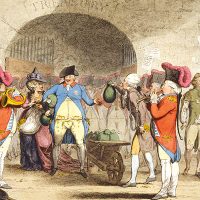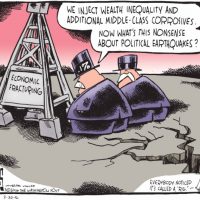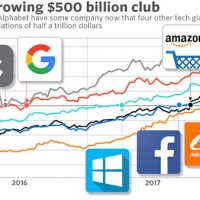-
The Unipolar Moment is over
The Russia-China strategic partnership, consolidated last week in Russia, has thrown U.S. elites into Supreme Paranoia mode, which is holding the whole world hostage.
-
Money on the Left: Confronting Monetary Imperialism in Francophone Africa
Ndongo Samba Sylla on the history of political economy in pre- and post-colonial Africa, the theoretical bases and political stakes of the anti-CFA Franc movement, and how Modern Monetary Theory (MMT) ought to inform current and future efforts to restore political and economic sovereignty to West African nations.
-
Colored Property & State Debt with David Freund
In this episode, we talk with David Freund, associate professor of history at the University of Maryland. David is the author of Colored Property: State Policy and White Racial Politics in Suburban America, an award-winning book that tracks how the language of racial exclusion was re-coded in terms of markets, property, and citizenship in the post-World War II era.
-
‘Facebook Coin’: The media giant is trying its hand at banking
Facebook’s cryptocurrency initiative furthers an agenda of neoliberal financialization, writes Josh Gabert-Doyon
-
Imagining the Green New Deal with Robert Hockett
In this episode, we speak with Robert Hockett, Edward Cornell Professor of Law at Cornell Law School. At Cornell, about his role in crafting the Green New Deal Resolution, his conception of finance as a franchise, and his experience as an advisor to Congresswoman Alexandria Ocasio-Cortez as well to Senators Sanders and Warren.
-
Is there any way out of the U.S. student debt crisis?
By working three jobs while in college and with some financial assistance from her mother, Karen Hawkins managed to pay off her undergraduate loans of US$12,000 eight years after completing her bachelor’s degree at the University of Illinois at Urbana-Champaign.
-
Global Banks, led by JPMorgan Chase, invested $1.9 Trillion in fossil fuels since Paris climate pact
The top four banks that invested most heavily in fossil fuel projects are all based in the U.S., and include JPMorgan Chase, Wells Fargo, Citi, and Bank of America. Royal Bank of Canada, Barclays in Europe, Japan’s MUFG, TD Bank, Scotiabank, and Mizuho make up the remainder of the top 10.
-
Economic analysis & imperialism today
An introduction and slideshow of Tony Norfield’s presentation at the Rethinking Economics conference in Greenwich University, London, on the topic of ‘Economic Analysis & Imperialism Today’.
-
Solidarity isn’t a slogan, it’s a process: a conversation with Vijay Prashad
In this exclusive interview, a prominent Indian intellectual examines how imperialism operates in our time and proposes specific forms of solidarity with Venezuela.
-
Ricardo Hausmann’s “morning after” for Venezuela: the neoliberal brain behind Juan Guaido’s economic agenda
While online audiences know YouTube comedian Joanna Hausmann from her videos making the case for regime change, her economist father has flown below the radar. His record holds the key to understanding what the U.S. wants in Venezuela.
-
Capitalist globalization is not unwinding: TNCs continue to increase their power and profits
The Great Recession of 2008 marked the end of a lengthy period of international economic growth and rapidly increasing international trade. Now, some ten years later, economic activity, including trade and foreign direct investment, remains far below pre-crisis levels with little sign of revival.
-
Guaido ‘appoints’ new oil executives as Trump vows ‘all options on table’
Trump has repeatedly refused to rule out a military option.
-
The State and Accumulation Under Contemporary Capitalism
Historically, capitalism develops institutions and ideologies that justify surplus extraction and capital accumulation. In the last decades of the twentieth century, the financialization of capitalism initiated a new era of accumulation which is known in academic contexts as finance-capital-driven neoliberalism.
-
Myth of the Medieval Jewish Moneylender with Julie Mell
On this episode, Scott Ferguson and Maxximilian Seijo speak with Mell about these and other connections that may be drawn between her own and neochartalism’s critical projects.
-
The political roots of falling wage growth
It’s now official: workers around the world are falling behind. The International Labor Organization’s (ILO) latest Global Wage Report finds that, excluding China, real (inflation-adjusted) wages grew at an annual rate of just 1.1% in 2017, down from 1.8% in 2016. That is the slowest pace since 2008.
-
Measure for measure
No matter how we measure it, most Americans are falling further and further behind the tiny group at the top.
-
This radical plan to fund the ‘Green New Deal’ just might work
With what author and activist Naomi Klein calls “galloping momentum,” the “Green New Deal” promoted by Rep.-elect Alexandria Ocasio-Cortez, D-N.Y., appears to be forging a political pathway for solving all of the ills of society and the planet in one fell swoop.
-
Amazon, Google & Big Tech’s productivity paradox
Whatever you may think of the multi-billionaire founders of Amazon and Alphabet-Google,(1) there would seem to be one undeniable fact about their companies: they have massively improved productivity. Amazon has an e-commerce system that delivers very efficiently; Google has revolutionised Internet search.
-
Facing the left-wing challenge in the European Union
One of the central and most concrete themes that the break should cover concerns the way public indebtedness is used to justify austerity policies.
-
Living our lives inside a tragedy the size of the planet
After fifteen years in the cold, the International Monetary Fund (IMF) returned to Argentina this May. President Mauricio Macri promised to attract foreign direct investment and to make his country the ‘supermarket of the world’. Instead, Argentina’s economy went into a tailspin. The IMF entered with its shop-worn prescriptions, a recipe that it has effectively sold for the past four decades: structural adjustment.









